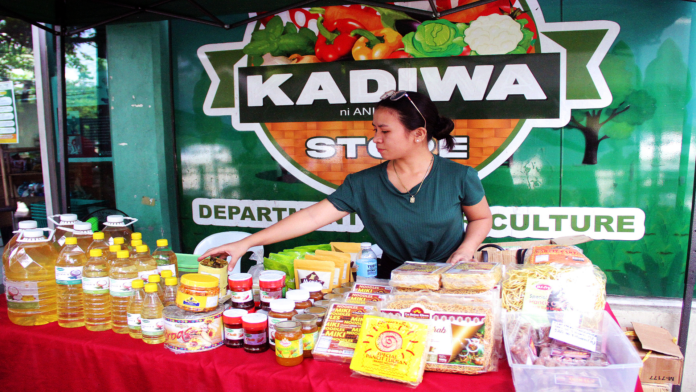The Department of the Interior and Local Government (DILG) on Tuesday said it will continue to implement policies and programs supporting the “Kadiwa ng Pangulo” program in line with President Ferdinand R. Marcos Jr.’s goal of ensuring food security.
In a post-State of the Nation Address (SONA) forum, DILG Secretary Benhur Abalos said his department will continue to intensify engagements between national and local governments to put up regular Kadiwa Centers in different localities to make food accessible and affordable to Filipinos.
“The Kadiwa program is an important measure that quickly responds to food insecurity and is also a useful measure to introduce high-nutrient foods to malnourished populations. That is why the DILG, in partnership with the local government units (LGUs) and concerned national government agencies (NGAs), aims to bring this initiative down to our communities so we will be able to reach more Filipinos, especially the poor,” Abalos said.
He also urged all local chief executives to establish Kadiwa stalls in their barangays and seek the cooperation of civil society organizations and the private sector to employ a “whole-of-nation” approach to ensuring food security.
The Kadiwa Program is a farm-to-consumer market chain program that eliminates intermediaries, allowing local producers to sell directly to consumers at affordable prices.
HAPAG sa Barangay Project
The DILG also reported that its Halina’t Magtanim ng Prutas at Gulay (HAPAG) sa Barangay Project has so far allocated over 881 hectares of land for community gardening in 19,188 barangays nationwide.
Launched early this year, the HAPAG sa Barangay Project encourages barangays and households to produce fresh, healthy and affordable fruits and vegetables from their backyards and spaces through the establishment of community gardens in vacant and unused areas of their villages.
“The DILG will remain a staunch supporter of the overarching goals of the Marcos administration in building an inclusive society where no one is hungry and where Filipinos live long and healthy lives,” Abalos said.
In his second SONA on Monday, President Marcos said his administration will continue to build more Kadiwa stories nationwide to give Filipinos more access to lower prices of basic commodities, particularly agricultural products.
He said 1.8 million families have already benefited from the Kadiwa program nationwide.
In the same post-SONA forum held at Hilton Manila in Pasay City, DA Undersecretary Mercedita Sombilla said the department will look for suitable areas to put up more Kadiwa stores.
“We have to study so that we can identify more specific interventions where we can place this Kadiwa or where they are most needed. That will make them much more valuable on what they are giving now,” she said.
She said Kadiwa program is very important as it provides direct market where farmers and fisherfolk can sell their produce.
“The President wishes to have a Kadiwa in every locality in every municipality and this will assure ready market to producers, assure availability of sufficient supply to the consumers,” she said.
“Put in strategic places, I think it’s really high time to make assessment and how the Kadiwa has been performing and it really benefited both the farmers and the consumers,” she added.
Sombilla said there are three types of Kadiwa stores: the regular Kadiwa, the Kadiwa ng Pangulo (formerly Kadiwa ng Pasko) and Seafood Kadiwa. (PNA)


